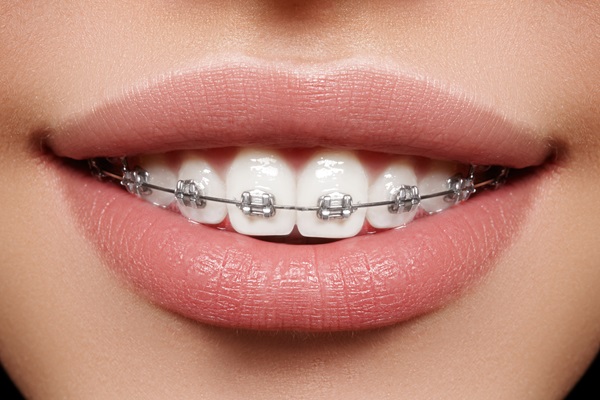What Are the Different Types of Gum Disease?

Choosing a general dentist to address gum disease is essential. General dentists undergo many years of training in order to learn how to provide their patients with optimal dental care services. One of the more important services they offer is dental check-ups, as this type of dental appointment is one that can help prevent a gum disease diagnosis.
The importance of having a healthy mouth
Gum disease, which cannot only damage one’s gums, can also damage one’s teeth. Good dental health also supports overall general health, as poor oral health can lead to one being diagnosed with certain health issues like heart disease, diabetes and a weakened immune system. In order to make sure one’s dental health is in good shape, it is essential to make regular dental appointments.
The different types of gum disease
The list below includes the four main different types of gum disease one can be diagnosed with.
Stage 1: Gingivitis
Gingivitis is the first stage of gum disease. It starts when there is a buildup of plaque on the teeth, which turns into a hardened plaque if not removed in a timely manner. Plaque is a sticky substance that not only sticks to one’s teeth but also attracts bad bacteria, which can lead to even more oral and general health problems. According to the American Academy of Periodontology, untreated gingivitis can advance to periodontitis and can eventually lead to tooth loss and other health problems.
Stage 2: Mild periodontitis
This second stage of gum disease is when the gums will become sore, irritated and may even start to bleed, which is the beginning of potential tooth loss. Mild periodontitis is when the disease begins to go deeper into the gums, making it more difficult to treat. This means that those diagnosed with stage two gum disease will begin to experience deeper degrees of gum recession, which not only makes the mouth unhealthy, it also tends to make one look older than they are.
Stage 3: Moderate periodontitis
Moderate periodontitis is the third main stage of gum disease. Once one reaches this stage, they will experience even more gum recession. They will also begin to experience a moderate amount of bone loss and/or mouth infections that can negatively affect the entire body. The natural support system of the teeth is now in great jeopardy, making dental treatment essential to save the health of one’s mouth and body.
Stage 4: Advanced periodontitis
An advanced periodontitis diagnosis means that the gums are now full of infection. This means those diagnosed will experience pain when chewing, as well as ongoing bad breath due to the infection. Tooth loss is common at this stage, which will need to be soon replaced as a healthy mouth is one that includes a full set of teeth. The fact that this late stage of gum disease can cause serious overall health problems makes fast treatment necessary.
Living with gum disease?
Since any type of gum disease is considered to be harmful, those who are living with gum disease are in need of professional dental treatment. With the proper dental treatment and care, it is possible to reverse gum disease, so early treatment is essential.
Request an appointment here: https://www.esdmke.com or call Eastside Dental at (414) 888-4000 for an appointment in our Milwaukee office.
Check out what others are saying about our services on Yelp: Read our Yelp reviews.
Recent Posts
Treatment with braces can improve your oral health and help you smile with more confidence. However, there are important instructions to follow for treatment to be safe and effective. Among these instructions is important information on foods to avoid during treatment, as they can be damaging to your braces and your teeth. According to Healthline, many…
Seeing a family dentist for a cavity treatment can target the problem teeth right away before they worsen. Many solutions are available. Discussing the process can help you make informed decisions. Here are the details on how your family dentist treats cavities.An individual cannot treat a cavity at home. The only way to get relief…
If you have not taken your child to a kid friendly dentist yet, now is the right time. Good oral health is critical to overall well-being. Children need a good foundation of sound dental habits, as these can last a lifetime. A kid friendly dentist has the knowledge and training to meet the most challenging…
When considering full mouth reconstruction to restore oral health, it is important to learn about the process, including the choice to make. When multiple dental issues are present, a full mouth reconstruction is usually the best procedure to correct the problems and restore oral functions and one's appearance. Since there is a lot of information…


